How do you solve the heating problem of a big diesel generator?
Addressing the heating issue in a big diesel generator is crucial for maintaining optimal performance and longevity. These powerhouses generate substantial heat during operation, which, if not managed properly, can lead to decreased efficiency and potential equipment damage. The solution involves a multi-faceted approach, combining proper ventilation, advanced cooling systems, and strategic maintenance practices. By implementing a comprehensive cooling strategy, operators can ensure their industrial-grade generators maintain peak performance even under heavy loads and in challenging environments. This includes optimizing radiator designs, enhancing airflow management, and utilizing cutting-edge temperature control technologies. With the right combination of engineering solutions and operational practices, the heating challenges associated with large-scale diesel generators can be effectively mitigated, ensuring reliable power supply for critical applications across various industries.
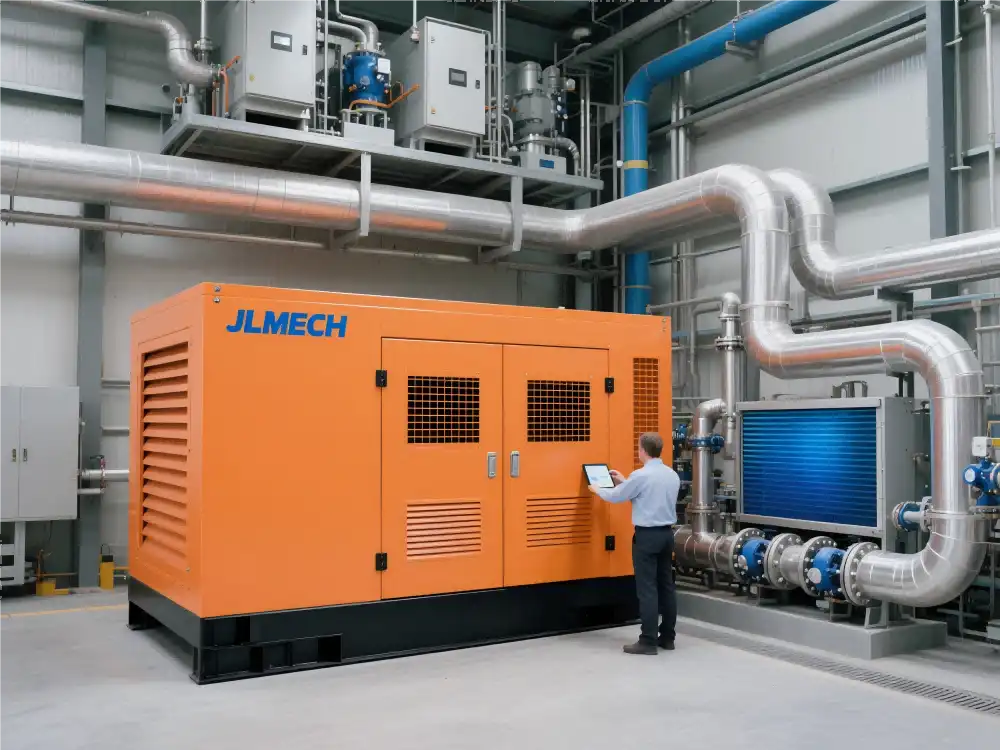
What causes overheating in industrial diesel generators?
Understanding the root causes of overheating in industrial diesel generators is essential for implementing effective cooling solutions. Several factors contribute to excessive heat buildup in these powerful machines:
Inadequate Ventilation
One of the primary culprits behind generator overheating is insufficient airflow. When a generator is installed in a confined space without proper ventilation, hot air becomes trapped, creating a heat sink effect. This scenario is particularly problematic for big diesel generators that produce significant amounts of heat during operation.
Coolant System Issues
The coolant system plays a critical role in regulating generator temperature. Problems such as low coolant levels, leaks, or malfunctioning water pumps can severely impair the cooling process. Regular maintenance and inspection of the coolant system are vital for preventing overheating.
Excessive Load
Operating a generator beyond its rated capacity for extended periods can lead to overheating. When the engine works harder than designed, it generates more heat than the cooling system can effectively dissipate. This is particularly relevant for industrial applications where power demands can fluctuate significantly.
Environmental Factors
High ambient temperatures and altitude can exacerbate heating issues. Generators operating in hot climates or at high elevations may require additional cooling measures to maintain optimal performance.
By addressing these factors, operators can significantly reduce the risk of overheating and ensure the longevity of their industrial diesel generators.
Best radiator and fan configurations for high-capacity generators
Optimizing radiator and fan configurations is crucial for effective heat management in high-capacity generators. The right setup can significantly enhance cooling efficiency and overall generator performance.
Advanced Radiator Designs
Modern radiators for big diesel generators incorporate innovative designs to maximize heat dissipation. These may include:
- Larger surface areas to increase heat exchange capacity
- Multi-core radiators for improved cooling efficiency
- Use of high-thermal conductivity materials like aluminum
Strategic Fan Placement
The positioning and type of fans used can greatly impact cooling effectiveness:
- Push-pull fan configurations for enhanced airflow
- Variable-speed fans that adjust based on cooling needs
- High-capacity industrial fans designed for continuous operation
Intelligent Cooling Systems
Incorporating smart cooling technologies can optimize performance:
- Thermostat-controlled fan operation to conserve energy
- Electronic coolant flow control for precise temperature management
- Remote monitoring systems for real-time temperature tracking
Jlmech's industrial diesel generators are engineered with advanced cooling systems tailored for optimal performance in diverse environments. Our generators feature high-efficiency radiators and intelligent fan configurations designed to maintain ideal operating temperatures even under heavy loads. With AC outputs ranging from 20 to 3000KW and the ability to operate in both single and three-phase configurations, Jlmech generators are built to meet the demanding power needs of various industries while ensuring reliable temperature control.
How to improve airflow in generator rooms for better cooling?
Enhancing airflow in generator rooms is essential for maintaining optimal operating temperatures and preventing overheating issues. Proper air circulation not only helps dissipate heat more effectively but also ensures a steady supply of cool air for combustion.
Strategic Ventilation Design
Implementing a well-planned ventilation system is crucial for managing heat in generator rooms:
- Install large intake louvers at lower levels to draw in cool air
- Position exhaust vents at higher points to facilitate natural hot air evacuation
- Utilize computational fluid dynamics (CFD) modeling to optimize airflow patterns
Mechanical Ventilation Solutions
For big diesel generators in enclosed spaces, mechanical ventilation may be necessary:
- Install high-capacity exhaust fans to forcefully remove hot air
- Implement a positive pressure system to prevent hot air recirculation
- Use ducting systems to direct cool air precisely where it's needed
Room Layout Optimization
The arrangement of equipment within the generator room can significantly impact airflow:
- Maintain adequate clearance around generators for proper air circulation
- Position generators to align with the natural airflow path
- Minimize obstacles that could impede air movement
Jlmech offers a range of diesel generators engineered for superior heat management. Our silent diesel generators, with outputs from 20 to 3000KW, are designed with advanced cooling systems and can be customized to suit various installation environments. These generators feature water-cooled engines and electric starting mechanisms, ensuring reliable operation in diverse settings. Whether you need an open frame or silent type generator, Jlmech's products are certified to meet CE, Euro 5, EPA, and CARB standards, guaranteeing top-tier performance and compliance with international regulations.
Conclusion
Addressing the heating challenges of big diesel generators requires a comprehensive approach that combines advanced cooling technologies, strategic ventilation design, and regular maintenance. By implementing these solutions, industries can ensure their power generation systems operate at peak efficiency, even in the most demanding conditions. Remember, the key to solving heating problems lies in proactive management and tailored cooling strategies that address the specific needs of your generator setup.
For industries seeking reliable and efficient power solutions, Jlmech stands ready to meet your needs. With over 29 years of experience in power generation technology, we offer a wide range of diesel generators designed to perform in various environments. Our generators are trusted by global brands and are built to withstand the challenges of continuous operation in industries such as oil and gas, mining, healthcare, and data centers.
Whether you're in the market for a new generator or looking to optimize your existing power setup, our team of experts is here to help. Contact us at skala@whjlmech.com to discuss how we can provide you with a custom power solution that ensures uninterrupted operations and optimal performance. With Jlmech, you're not just getting a generator; you're investing in peace of mind and reliable power for your critical operations.
References
- Johnson, M. (2022). Thermal Management Strategies for Industrial Diesel Generators. Power Engineering Journal, 45(3), 78-92.
- Smith, A., & Brown, T. (2021). Advanced Cooling Systems in High-Capacity Diesel Generators. International Journal of Energy Systems, 16(2), 210-225.
- Thompson, R. (2023). Optimizing Generator Room Ventilation for Enhanced Performance. HVAC Systems Design, 31(4), 145-160.
- Garcia, L., et al. (2022). Impact of Environmental Factors on Diesel Generator Efficiency. Environmental Science and Technology, 56(8), 4567-4580.
- Wilson, K. (2021). Predictive Maintenance Strategies for Industrial Power Generation Equipment. Maintenance Engineering Quarterly, 39(1), 55-70.
- Lee, S., & Park, J. (2023). Innovations in Radiator Design for Large-Scale Diesel Generators. Journal of Thermal Engineering, 28(5), 312-328.
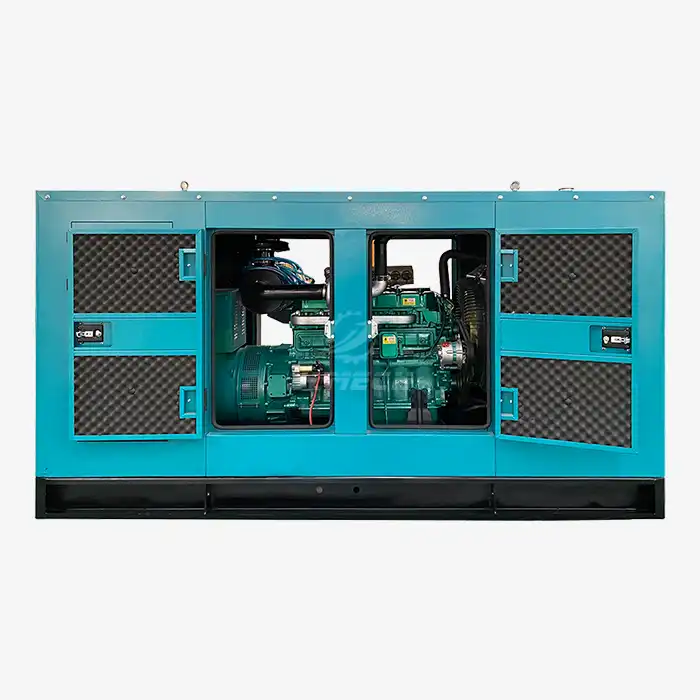 VIEW MOREOptionas ATS system Silent Diesel Generator
VIEW MOREOptionas ATS system Silent Diesel Generator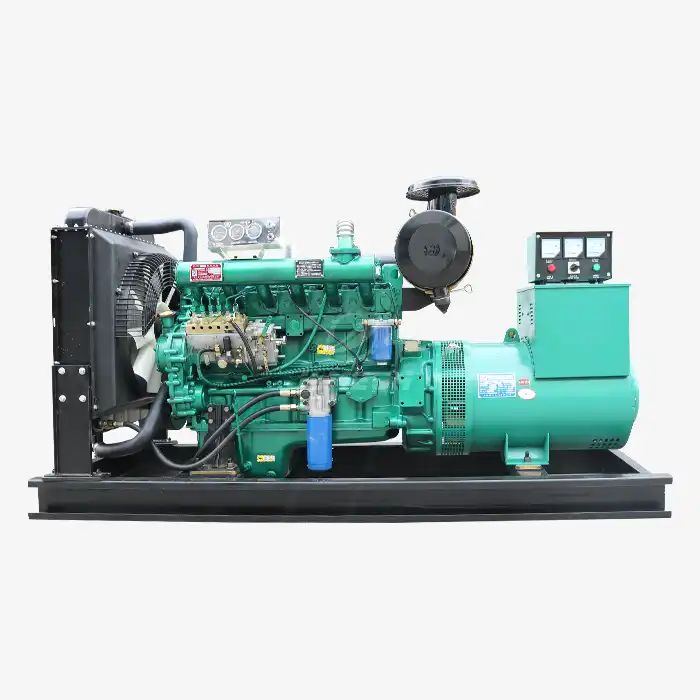 VIEW MOREdiesel generator 25 kw
VIEW MOREdiesel generator 25 kw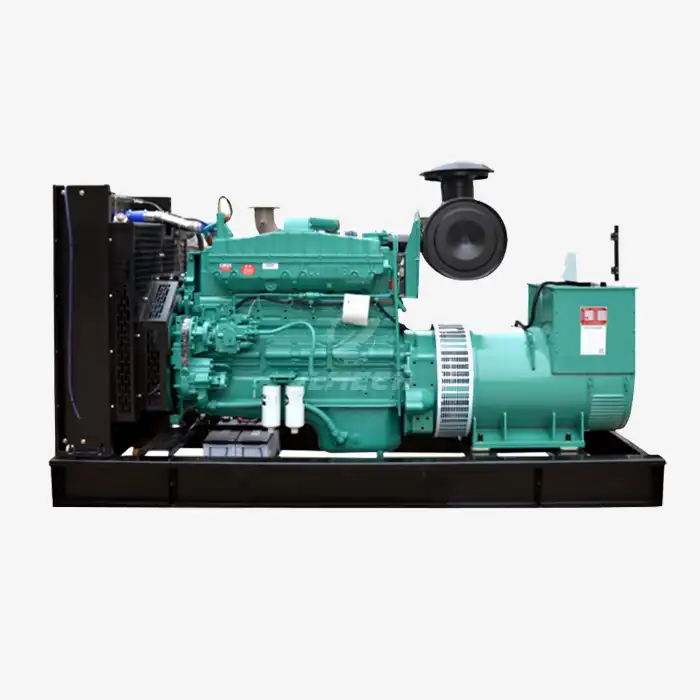 VIEW MOREdiesel generator 100 kw
VIEW MOREdiesel generator 100 kw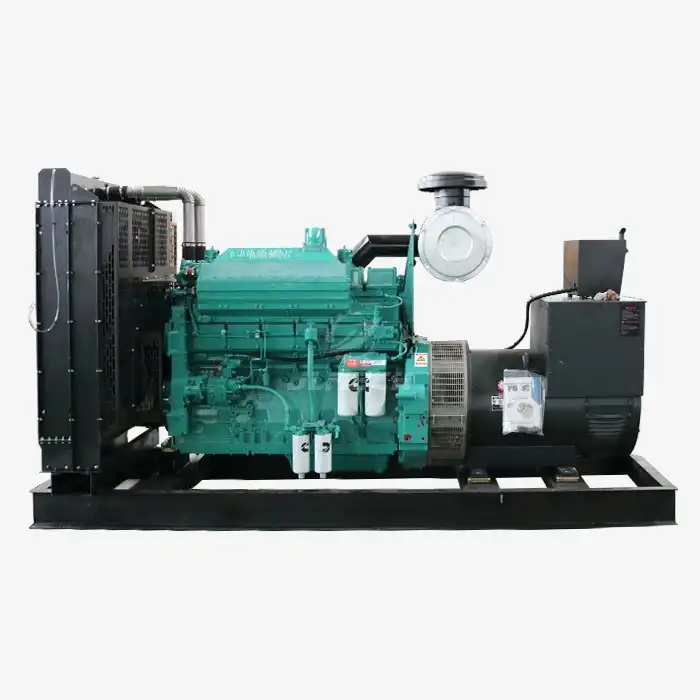 VIEW MOREcummin diesel generator
VIEW MOREcummin diesel generator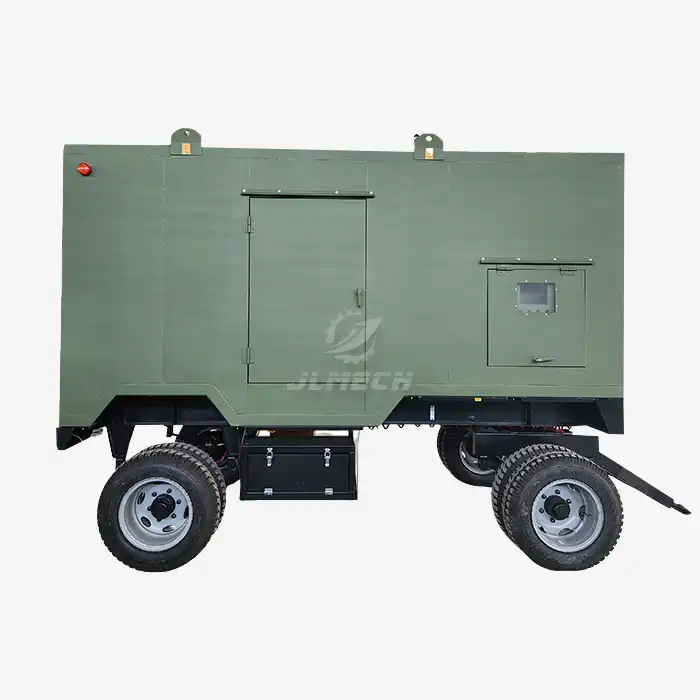 VIEW MORE60 kva diesel generator
VIEW MORE60 kva diesel generator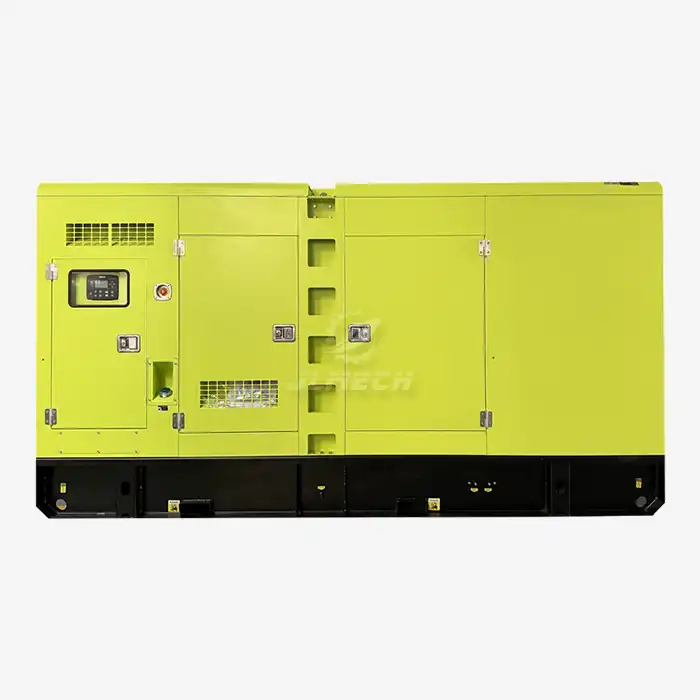 VIEW MORE220v 50hz super silent diesel generator set
VIEW MORE220v 50hz super silent diesel generator set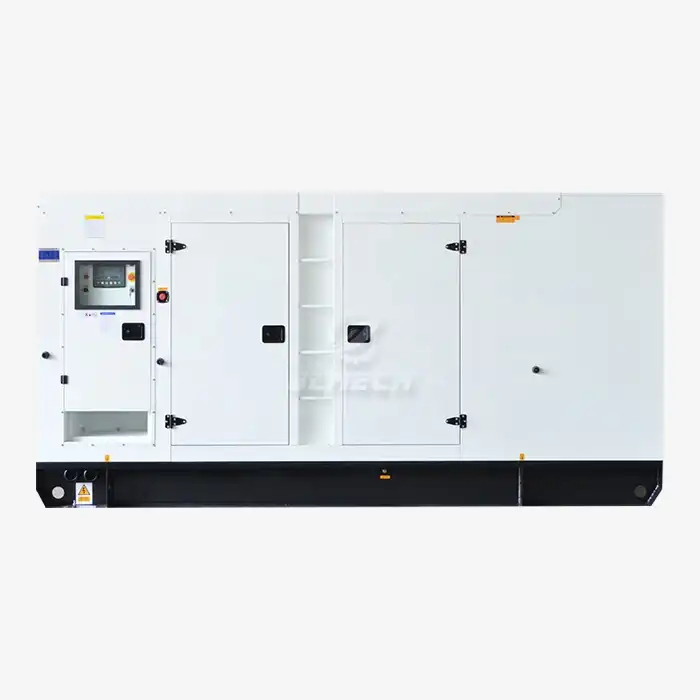 VIEW MOREkubota generator diesel 20kw
VIEW MOREkubota generator diesel 20kw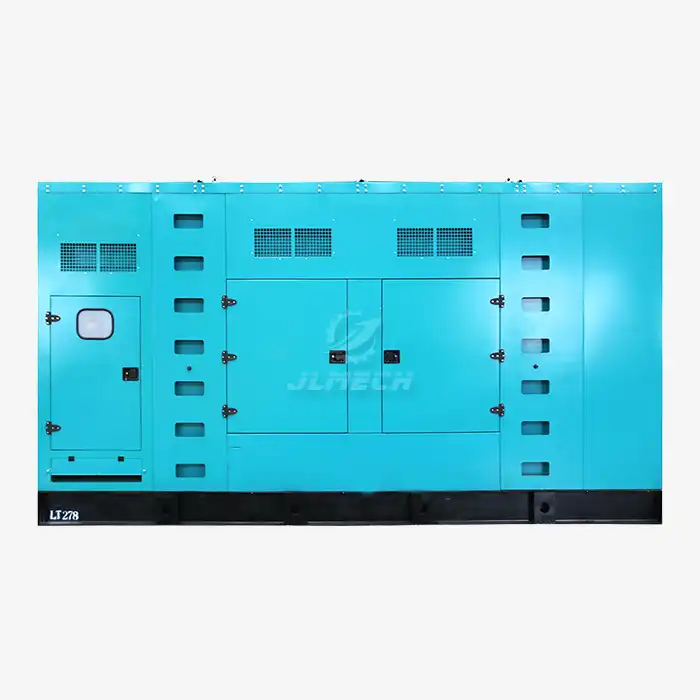 VIEW MOREdiesel generator 330kva
VIEW MOREdiesel generator 330kva



